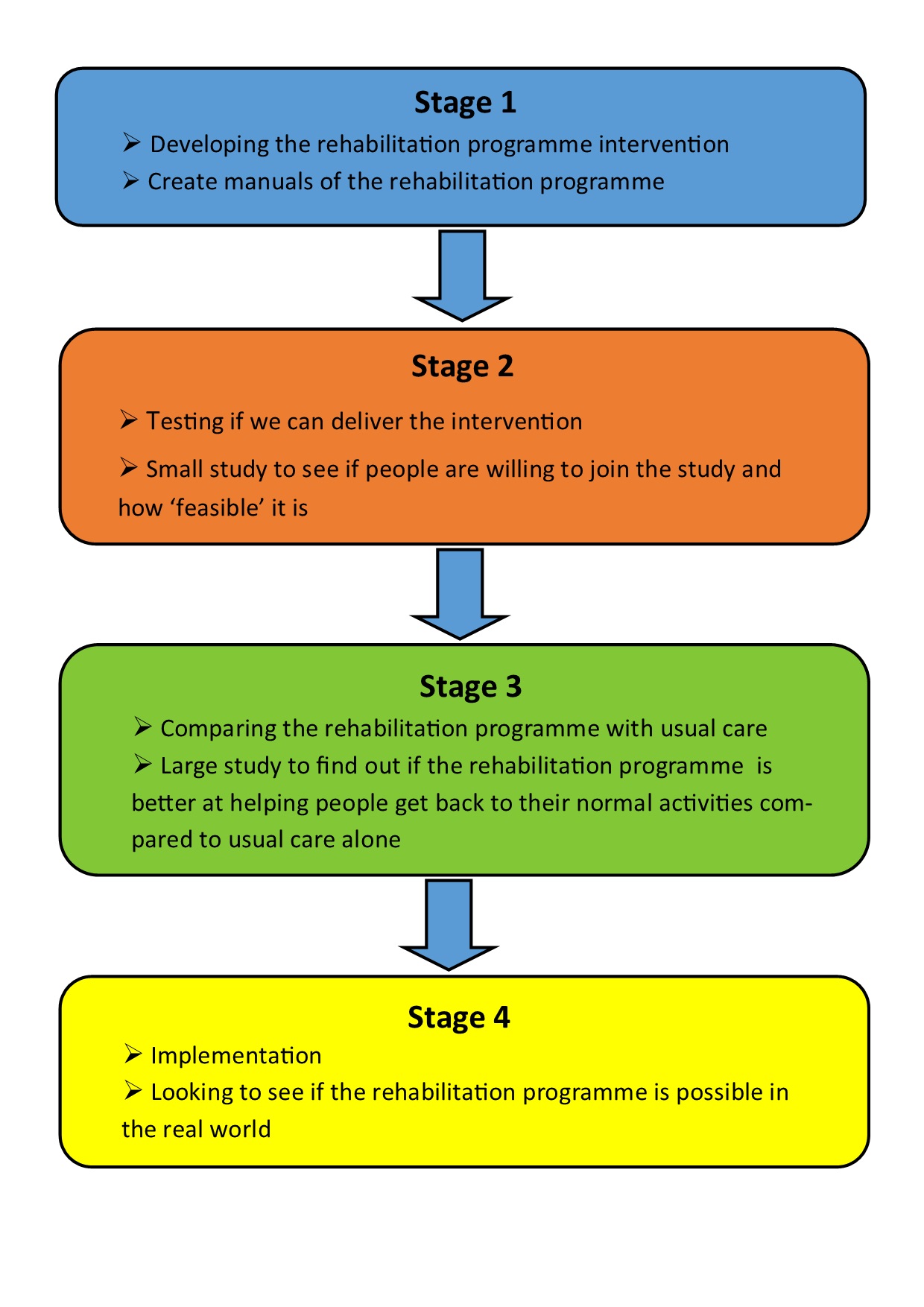The word delirium describes when a person become suddenly confused or more confused than usual. It affects a quarter of older people who come into hospital. Delirium is usually caused by an illness such as an infection. Many people take months to recover their memory and thinking skills, and some never recover completely. Previous research has looked at how to prevent and treat delirium while people are in hospital but there has been little research into how to improve people’s recovery after delirium.
What do we aim to do?
This programme aims to develop and test a package of activities (intervention) to help people recover from delirium at home. We will work with a panel of experts and people with lived experience to plan our intervention. Then we will run a small study to test out our intervention with some people who have had delirium. Following the small study, we plan to run a full randomised controlled trial to see if our intervention works and is good value for money.
How will we do this?
The RecoverED Study is a 4 stage process:
Would you like to get involved?
We are recruiting patients in the hospital for the RecoverED Study who:
- Are over 65 years of age
- Have had a diagnosis of delirium lasting for more than 48 hours
- Are expected to be living back at home after discharge
If you are interested, please read the Information Sheets below that are relevant to you:
Participant Information Sheet (Patient)
Participant Information Sheet (Family and Friend)
Participant Information Sheet (Consultee)
Participant Information Sheet (Patients in Scotland)
Participant Information Sheet (Legal Representative in Scotland)
For more information about getting involved, please do visit this website.
Site staff resources
This page is designed to provide our site staff members with the necessary resources and information to support them in delivering the intervention and accurately recording the data. We hope you find the following resources and contact details helpful:
- Training Modules: Access our RecoverED intervention training package by clicking on the link provided.
- Database Demo Videos: Click on the link to access helpful demo videos on database functions for the RecoverED study.
- Intervention Manual: Access the RecoverED study intervention manual by clicking on the link provided.
- Contact Details: For any intervention-related inquiries or support, please do not hesitate to contact us at Recovered-Support@exeter.ac.uk or on 01392 726078.
We are committed to providing you with the support and resources you need to successfully carry out your work on the RecoverED study. If you have any questions or concerns, please do not hesitate to reach out to us for assistance.
This study is Sponsored by the Royal Devon University Healthcare NHS Foundation Trust and managed by the University of Exeter.
This study is funded by the National Institute of Health and Care Research Programme Grants for Applied Research Programme (NIHR202338). The views expressed are those of the author(s) and not necessarily those of the NIHR or the Department of Health and Social Care.
Collaborators
- Professor Louise Allan, Alison Bingham, Abigail Laverick, Dr Shruti Raghuraman, Dr Aseel Mahmoud, Sophie Pankiewicz, Phoebe Dawe, Dr Abby O’Connell, Dr Kirstie Chandler, Dr Jinpil Um, James Connors, Rachael Litherland, Dr Sarah Morgan-Trimmer, Dr David Strain, University of Exeter
- Dr Joe Butchart, Royal Devon University Healthcare NHS Foundation Trust
- Professor Lesley Collier, University of Winchester
- Professor Daniel Davis, University College London
- Professor Jon Glasby, University of Birmingham
- Professor Rowan Harwood, University of Nottingham
- Dr Thomas Jackson, University of Birmingham
- Professor Alasdair MacLullich, University of Edinburgh
- Dr Sarah Richardson, Newcastle University
PenARC Staff

Professor Linda Clare
Professor of Clinical Psychology of Ageing and Dementia and PenARC Dementia Theme Lead
Professor Vicki Goodwin MBE
Professor of Ageing and Rehabilitation and Academic Career Development Lead
Professor Rob Anderson
Professor of Health Services and Implementation Research
Dr Annie Hawton
Associate Professor in Health Economics Research

